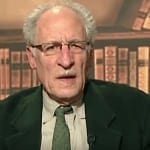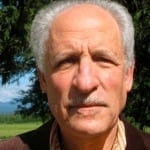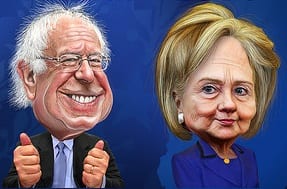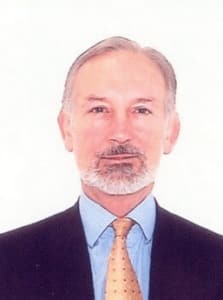NATO and the Bananazation of Western Europe

The wars of NATO are well-publicized but NATO as an institution remains in the shadows. Does NATO aspire to be a world government? Why did Western European countries join and why have they remained part of the alliance? It is not an egalitarian organization. The United States dominates every aspect of it. Are these supposedly social democratic countries really democracies, or are they banana republics? The traditional banana republic has democratic institutions, but is controlled by military and financial elites which are vassals of the United States.
Why NATO was formed is controversial. The official US justification was fear of an invasion by the Soviet Union to promote communism in Western Europe. There was never any evidence that this might happen, but then anything is possible.
There is evidence that other motives were more important. One was to facilitate the re-arming of Germany by embedding it in a larger military grouping. Western European countries were wary of an independent German military establishment. Another was the desire of pro-capitalist elites to prevent domestic socialist or communist electoral or revolutionary victories. This was much more of a threat than a Soviet invasion.
The founding treaty clearly states:
The Parties undertake, as set forth in the Charter of the United Nations, to settle any international dispute in which they may be involved by peaceful means in such a manner that international peace and security and justice are not endangered, and to refrain in their international relations from the threat or use of force in any manner inconsistent with the purposes of the United Nations.
The operative part is Article 5:
The Parties agree that an armed attack against one or more of them in Europe or North America shall be considered an attack against them all and consequently they agree that, if such an armed attack occurs, each of them, in exercise of the right of individual or collective self-defence recognised by Article 51 of the Charter of the United Nations, will assist the Party or Parties so attacked by taking forthwith, individually and in concert with the other Parties, such action as it deems necessary, including the use of armed force, to restore and maintain the security of the North Atlantic area.
Members are not required to respond with military force; they can decide how far they want to go.
NATO, formed in 1949, now has twenty-eight full members: Albania, Belgium, Bulgaria, Canada, Croatia, the Czech Republic, Denmark, Estonia, France, Germany, Greece, Hungary, Iceland, Italy, Latvia, Lithuania, Luxembourg, the Netherlands, Norway, Poland, Portugal, Romania, Slovakia, Slovenia, Spain, Turkey, the United Kingdom, and the United States.
However, NATO is a vast empire with an expanding group of full members, plus networks, partnerships, associates, and guests. The Partnership for Peace includes: Armenia, Austria, Azerbaijan, Belarus, Bosnia and Herzegovina, Finland, Georgia, Ireland, Kazakhstan, Kyrgyzstan, Macedonia, Montenegro, Malta, Moldova, Russia, Serbia, Sweden, Switzerland, Tajikistan, Turkmenistan, Ukraine, Uzbekistan. These nations choose from a “menu” how far they want to go with NATO. Options include joint missions, combating terrorism, crisis response in the NATO Reaction Force (NRF), controlling mines and small arms, disaster rescue, war games, and scientific cooperation.
PfP members aspiring to full membership must have: weapons interoperability (e.g., Eastern Europe countries had to get rid of Russian and old Warsaw Pact arms in favor of Western ones), increase military spending to 2% of the GDP, purge “politically unreliable” personnel from military, defense and security posts, train abroad in NATO military academies, host military exercises, and instruct the officer corps in English for joint overseas operations.
Other NATO associates are the Mediterranean Dialogue countries: Algeria, Egypt, Israel, Jordan, Mauritania, Morocco, Tunisia; and the Gulf Cooperation Council: Bahrain, Qatar, Kuwait, United Arab Emirates. Also, there are cooperating members: Afghanistan, Australia, Iraq, Japan, Pakistan, Republic of Korea. New Zealand, Mongolia. Informally cooperating are Colombia, Honduras, and El Salvador.

[CC BY-SA by Allied Joint Force Command Brunssum]
NATO Secretary General Stoltenberg said last December:
NATO is playing a key role in the fight against ISIL (Islamic State of Iraq and the Levant) . . . All NATO allies are part of the coalition, the anti-ISIL coalition, and I think it’s of great importance for the coalition that both NATO allies but also many NATO partners are part of the coalition and they can take advantage of the interoperability that we have developed, our ability to work together which we have developed over many years through NATO military operations but also through NATO exercises. So the backbone of the forces in the coalition is provided by NATO and NATO partners.
NATO downplays its military nature and claims that it is simply the “premier organization of democratic nations.” This claim was part of the inducement for Eastern European countries to join. The new idea of both the US military and NATO is that security is no longer a territorial issue–everything is relevant to it. Any policy of any nation anywhere in the world, concerning economics, human rights, the environment, secession movements, etc., may be a cause of terrorism or create an external threat that needs to be thwarted in advance, by NATO.
NATO is closely connected to military, political, scientific, and corporate elites. Europe now has a huge military-industrial complex. BAE Systems, the largest military firm, is British owned, and has factories in New Hampshire, US, and many other places. The major Italian arms manufacturer, Finmeccanica, and French, Thales, are heavily government supported. EADS is a conglomerate headquartered in the Netherlands, with main subsidiaries in France, Germany and Spain. The Netherlands has recently announced a purchase of 37 F-35 fighter planes; some part of it is made there. Sweden also has a significant very high tech military industry.
[dropcap]T[/dropcap]he European Union is closely enmeshed with NATO. During its formative period, the original nations sent NATO ambassadors to Paris, its early headquarters. They developed a pro-NATO view which often differed from their governments. Currently, the EU executive and NATO both have headquarters in Brussels.

CC BY-NC by Juska Wendland
When information came out about the secret “Gladio” armies, about the thousands of nuclear weapons formerly and some still in Europe, nuclear waste dumps, and testing and use of DU weapons, it became clear that crucial NATO activities are unknown not only to the ordinary citizen, but also to parliamentary representatives and even prime ministers if they are not part of the inner circle. Denmark’s constitution and laws ban nuclear weapons, but they were in Greenland. The complicity of 14 European governments (East and West) in recent renditions of “suspects” was also a surprise to citizens of the greatest democracies. Sweden, not a member (but now a partner), has been secretly aiding NATO since the beginning.
NATO is building a massive new headquarters suitable for a global empire. Among its diverse activities are grants for many types of science research. Ukraine is now a major grantee in its science program, where a multinational capacity for disaster response is being developed. The multinational telemedicine system can be used for both civilian and military applications.
Another project studies images and perceptions of NATO among the five Global Partners in the Asia-Pacific region: Australia, Japan, Mongolia, New Zealand, and the Republic of Korea. “The project will conduct comprehensive comparative research of elite perceptions and media images of NATO as a global security actor to identify, measure, and raise global awareness, as well as extend knowledge of NATO in the region.”
The 2015 Nobel Prize in Chemistry was awarded to a Turkish NATO funded researcher, Aziz Sancar, who studied the mechanism of DNA repair. Now that everything affects security, NATO sponsors research in women’s reproductive choices, sustainable development, leather tanning effluent toxicity, landscape architecture, and stained glass preservation. Many projects are conducted jointly by teams including NATO member and PfP nationals, facilitating the mentoring of initiates.
Economic, political, educational, and social activities give NATO a friendly face. Internships at its Brussels headquarters are offered to students of political science, international relations, security studies, economics, engineering, human resources, information technology, library science, aeronautics, and journalism. It gives grants to environmental and other organizations just like a philanthropic foundation. On the other hand, citizens who protest the “out of area” aggressions are often branded as extremists or simply ignored.
NATO training includes massive war games, in which all members and many partners participate. For example, in 2013, “Steadfast Jazz,” a live-fire exercise, included partners Ukraine, Finland, and Sweden.

CC BY-SA by Allied Joint Force Command Brunssum
A network of training institutions exists in Europe, and NATO members are also trained in US military colleges and our great universities. The Joint Multinational Readiness Center in Germany provides combat training, and links European forces with US National Guard units. The Marshall Center for Security Studies, also in Germany, features university-type military training, and like many of the war colleges, educates civilian leaders and potential leaders as well as military personnel.
Military training throughout the world is an important part of the US empire. The US Department of Defense/State Department joint report to Congress for 2014 states that 52,600 people from 155 nations were trained—but this does not include NATO members, Australia, Japan, or New Zealand, because they are not required for the report. All arms sales are accompanied by training.
The relationships acquired through training, conferences, seminars, and joint exercises are a source of considerable power, as these experiences help younger people to move up the ladder to civilian and military leadership in their countries.
[dropcap]B[/dropcap]ases are also a source of influence. At one time there were more than 800 in Europe; now it is estimated that there are about 350. Originally, there were hundreds in Germany. Everywhere bases generate economic activity and also enable surveillance and influence, as explained in the fine study by Catherine Lutz, The Bases of Empire.
Why did Western European nations join and now remain in NATO?
There was the idea promoted that the Soviet Union was poised to invade Western Europe. Its dissemination was aided by close links among the CIA, FBI, and foreign intelligence agencies. The foreign press was complicit, and in addition, the CIA and private foundations created new publications, such as Encounter in London, and others in France, Italy, Germany and elsewhere. Conferences, such as those of the Congress for Cultural Freedom, were held to lure European intellectuals away from socialist and pacifist ideologies.

Former Italian PM Aldo Moro, a Christian Democrat, was kidnapped and eventually killed by a leftist urban guerrilla group, the Brigate Rosse (Red Brigades) in 1978. The murder created a wave of anti-communist/anti-left furor, but information unearthed since points to the BR’s heavy infiltration by rightwing operatives and possible CIA assets. Historian Sergio Flamigni, member of the Communist Refoundation Party, believes Moretti (a BR leader) was used by Gladio in Italy to take over the Red Brigades and pursue a strategy of tension.
Christian Democratic parties—bulwarks against communism and prime advocates of the “Atlantic alliance”—suddenly sprang up in many countries. They had been small entities before World War II; now they became governing parties, with an especially strong hold in Italy. The massive CIA funding to defeat the Italian Communist Party is well documented; there is evidence that similar activities were in place elsewhere in Europe. The NATO countries in turn financed Christian Democratic parties throughout Latin America.
Occupied Italy and Germany eventually joined NATO; they were already under the influence. In addition, some in those countries regarded membership as a sign of their conversion and redemption: they were with the “democratic” West. Spain, Portugal, Greece and Turkey were fascist countries, so militarism and anti-communism were natural for them.
But why the social democratic countries?
There was fear that Germany might develop an independent military, so embedding any future German army in a US led coalition was reassuring. Besides, the economic costs of each country creating its own high tech military seemed daunting. The UN Charter, which outlawed war, did not forbid national armies or regional alliances. In addition, the officials in the defense ministries of otherwise progressive countries tended to be conservative and believers in armed preparedness. The NATO alliance appeared especially useful in controlling socialist and communist parties within their countries. Those parties generally opposed NATO so had to be countered on that ground alone.
Ongoing support for NATO had the help of the Bilderberg group. This conspiratorial elite first met in the Netherlands in 1954, and consists of the power elite and potential leaders of North America and Western Europe. The group was especially concerned with the threat of socialism or communism from whatever source and was strongly oriented toward the Atlantic alliance. No formal resolutions are made or policies adopted. It is assumed that the members will apply the sense of the meeting in their exalted positions.
Public opinion in war-torn and impoverished Europe was influenced by Marshall Plan aid, which warmed up attitudes toward the US. A spinoff of the loan program was the repayment in local currency. These funds enabled the US to covertly or sometimes overtly subsidize center and right-wing citizen organizations, political parties, and unions
One example is the Labour Party of Britain, which was a double threat. Clause 4 of its constitution called for nationalization of major industries, and its mainstream supported the post-war Campaign for Nuclear Disarmament and opposed NATO. Secretly, the CIA lavishly funded and promoted a small conservative group in the party, organized around the Socialist Commentary journal. This group believed the Atlantic alliance was needed to forestall a Soviet invasion, and also held that given the “welfare state,” nationalization was no longer required. Those of this persuasion gradually moved into the party leadership.
Sweden, a neutral country and still not a full NATO member, nevertheless covertly collaborated with the US during World War II. It established a resistance army, to combat a possible Nazi invasion. This was a model for the secret “fall-back” armies which NATO later created throughout Western Europe, including in neutral Sweden and Switzerland.
Known as the “Gladio” project, the name of the Italian branch, they were presumably to offer resistance to a Soviet invasion. However, later government investigations, in Belgium, Italy, and Switzerland, found them complicit in domestic terrorism, political manipulations, and neo-Nazi activities. The existence of these armies was not known to the public, journalists, or most European politicians until after 1990.
Sweden cooperated with NATO all along, even though policies enacted during the administration of Prime Minister Olaf Palme forbade any war planning with NATO. The Swedish Security Service, military and intelligence agencies collaborated with the US, and their strong connections in the public broadcasting system gave them great influence over public opinion. Furthermore, the very important Swedish defense industry is intertwined with US military technology, and contrary to public policy, was sending weapons to the US for use in its war against Iraq. In 2009, war games “Loyal Arrow” were conducted by 10 countries in Northern Sweden, as a preliminary move to extend US and NATO military presence into Arctic regions—and confronting Russia in that area.
Norway would have preferred a Scandinavian alliance, but when this didn’t happen, it joined NATO, and this influenced Denmark and Iceland to follow. The (conservative) Icelandic Foreign Minister had been part of secret talks with the US regarding landing rights and hoped that a NATO installation would dampen the strong communist and socialist movements. Pressure was put on the reluctant public by suggesting that the Soviet fishing fleet near Iceland was really a military force that would occupy Iceland along with a “fifth column” of Icelandic socialists.
Denmark was reluctant to join NATO, but was persuaded. However, the public and even most political leaders were unaware of the plans for nuclear installations in Greenland that were part of secret agreements. These were illegal and unconstitutional in Denmark.
The French and Dutch joined, although there was much dissent. Under the leadership of De Gaulle, France opted out of the central command in 1966 and removed foreign occupation of military bases. However, it had its own nuclear armed military, and secret agreements to fight with NATO if trouble came. In 2009, France agreed to resume full membership.
The Dutch have been particularly unhappy about nuclear weapons, which are still present in Italy, Belgium, Germany, Netherlands and Turkey. Belgium was particularly hard hit economically by postwar developments, so the location of NATO headquarters in Brussels helped to cement attachment.
With the transformation and dissolution of the Soviet Union, many thought NATO was obsolete. However, the attacks of 9-11 created more enthusiasm. This was dampened by the invasion of Iraq (not an official NATO action) and Afghanistan, which invoked Article 5 on shaky grounds. Nevertheless, 50 nations participated in the Afghan attack, including, as mentioned previously, neutral Sweden and demilitarized Japan. More recent terrorism has revived support for NATO in Europe; France has drawn much closer.
Some believe that NATO’s activities and its very existence conflict with the spirit of the UN, while others maintain that NATO is an essential operating arm of UN collective security, with knowhow and extensive high-tech weaponry.
In the classical “banana republic,” the United States controls crucial foreign and/or domestic policies of another nation through ties with its military and intelligence institutions. Only now, there is resistance in the lands where bananas grow, while “social democratic,” “neutral,” and reputedly “pacifist” countries of Western Europe are slipping into bananazation. Ordinary citizens have strong anti-war feelings and continue protesting, yet the military, political, and corporate elites of Europe have increasingly become dependents or confederates of the US military-industrial complex.
Note to Commenters
Due to severe hacking attacks in the recent past that brought our site down for up to 11 days with considerable loss of circulation, we exercise extreme caution in the comments we publish, as the comment box has been one of the main arteries to inject malicious code. Because of that comments may not appear immediately, but rest assured that if you are a legitimate commenter your opinion will be published within 24 hours. If your comment fails to appear, and you wish to reach us directly, send us a mail at: editor@greanvillepost.com
We apologize for this inconvenience.
=SUBSCRIBE TODAY! NOTHING TO LOSE, EVERYTHING TO GAIN.=
free • safe • invaluable
[email-subscribers namefield=”YES” desc=”” group=”Public”]
Nauseated by the
vile corporate media?
Had enough of their lies, escapism,
omissions and relentless manipulation?
Send a donation to
The Greanville Post–or
But be sure to support YOUR media.
If you don’t, who will?
















